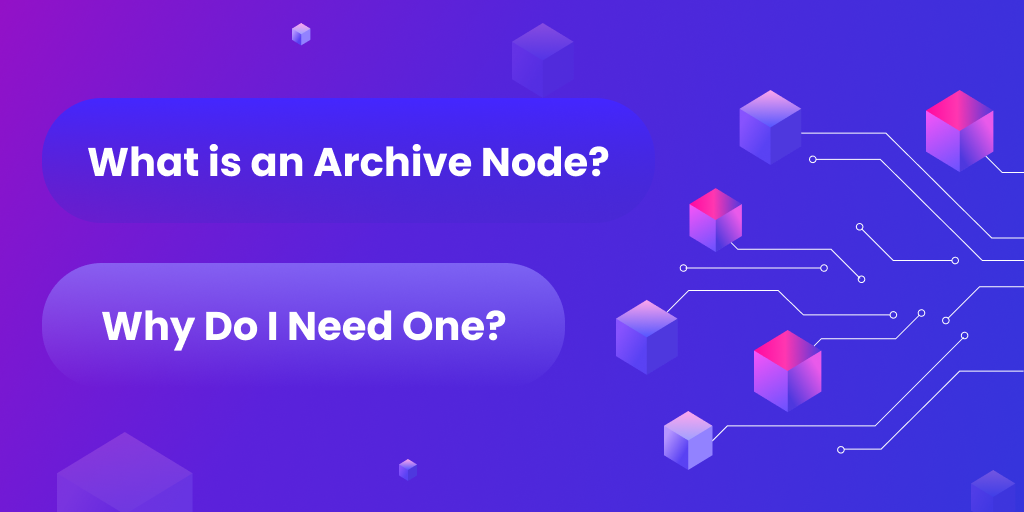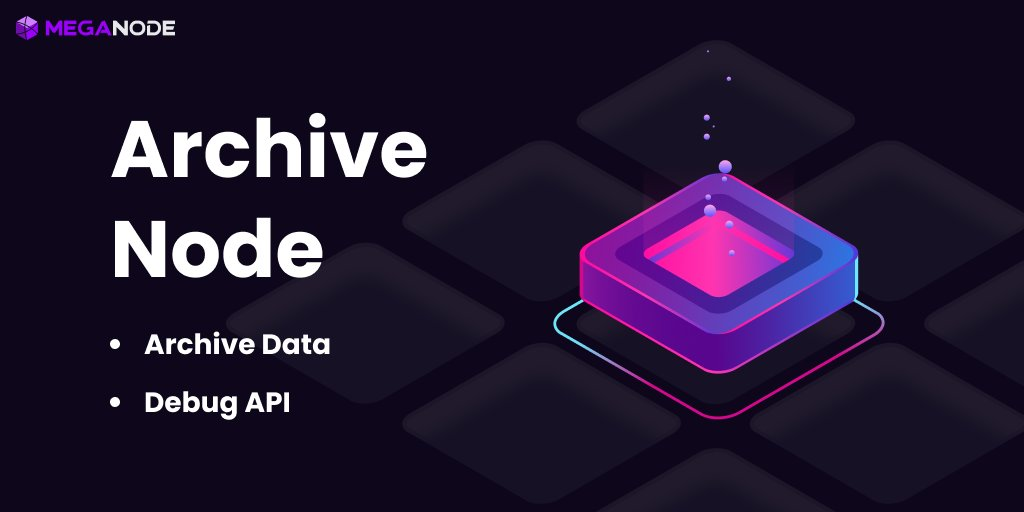Those of you that are new to blockchain development, will find that there can be a lot of unfamiliar concepts around nodes. In this article, we will dive deeper into the understanding of What is a blockchain node? What is an Archive Node? Why do I need one? And which service provider should I choose?
What is an Archive Node?
Before we dive into Archive Node, let’s start with the concept of blockchain node. A node is an indispensable and fundamental component of the blockchain network, which is based on distributed ledger technology (DLT). Network nodes are responsible for the correctness and reliability of storing the entered data in the distributed ledger.
There are basically two types of nodes: full nodes and light nodes. Full nodes support and provide security to the network. These nodes contain the entire information of the blockchain ledger, i.e. all that blockchain’s transactions, in real-time. Light nodes, comparatively, reduce blockchain data requirements to keep them running quickly without their underlying systems getting bogged down by too much data.
When it comes to archive nodes, our main focus in this article, they are full nodes running with a special option. It stores all the historical data of the blockchain since the genesis block. It works differently with a typical full node. An archive node always stores all the state change data for each block, while most full nodes only store the latest several states change data.

Why is Archive Node Important?
Developers are limited to querying the limited recent blocks to check the balance of an address and the state of a smart contract with a full node. It is hard as the blockchain is forwarding at the same time, while they can query any block at a specific point in time with an archive node. It is very necessary for those who hope to trace or provide a complete analysis of their business on the blockchain.
Archive nodes are used by various applications on the blockchain for challenging use cases, including but not limited to the followings:
- The automated trading system needs historical data to optimize trading model;
- Verification modules need state data to verify transactions in time;
- Analytical tools need full historical data to do data analysis;
- Exchange in some wallets depends on archive nodes for fast and resource-efficient transfers.
What’s the Challenge?
As mentioned above, archive nodes is crucial when accessing historical data of a blockchain. However, running an archive node comes at a high cost.
First of all, the hardware for an archive node should have high-performance equipment such as one high-performance disk with sufficient capacity. For example, currently, all the data for BNB Chain mainnet is nearly 20TB, nevertheless to say, it’s growing faster on the network than before. The equipment needs to upgrade regularly. Next, it takes weeks to sync all the data and requires constant maintenance such as data migration during hardware upgrading. Given the circumstances, it is not easy for developers to run archive nodes.
So, question here, what is the best way to deploy a reliable, secure, and fast archive node?
Getting Access to Archive Nodes with MegaNode!
Facing those mentioned challenges, your better choice is to choose a node provider to help you get started quickly. NodeReal’s MegaNode can be your wisest choice. We support two use cases in terms of archive node: historical data and debug API.
In MegaNode, every tier of the user is able to examine past states of the chain by querying a specific block. This helps you to get the historical balance, proof, or transactions. For those users who want to replay the historical transactions or calls, we provide debug API to our Growth & Enterprise users, which allow you to inspect, debug and set certain debugging flags during runtime.
We provide industry-leading BNB Chain historical data accessibility with minimum latency, and more importantly, it’s starting from FREE!.
Sign Up now and start your Web 3.0 journey with NodeReal’s MegaNode! For a tutorial, please refer to the video or check out our developer documentation here. For more support, feel free to reach us via help desk or email support@nodereal.io. We welcome all questions and feedback!
Follow Us
To learn more about NodeReal, visit our website, join our Discord channel for discussion and follow us on Medium and Twitter!

